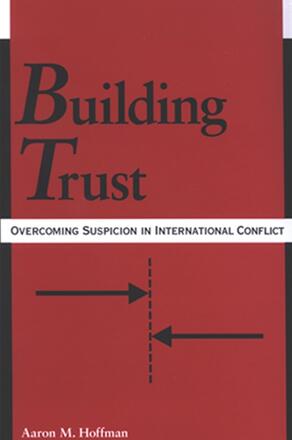
Building Trust
Overcoming Suspicion in International Conflict
Challenges conventional assumptions about how international rivals form trusting relationships.
Description
How is trust built in international politics? In this book, Aaron M. Hoffman argues that conventional arguments fail to account for two factors governments fear and wish to protect themselves from: domination by outside parties and political competition from internal parties. He argues that trusting relationships emerge in response to agreements that insulate governments from these worst-case scenarios by guaranteeing them voice in collective decisions and offering them concessions designed to mollify potential internal opposition. Using case studies that explore the formation of the United States, the development of the European Community, and negotiations over water resources in the Middle East, Hoffman shows that trusting relationships can only be built with the development of institutional mechanisms designed to reduce the consequences of betrayal.
Aaron M. Hoffman is Assistant Professor of Political Science at Purdue University.